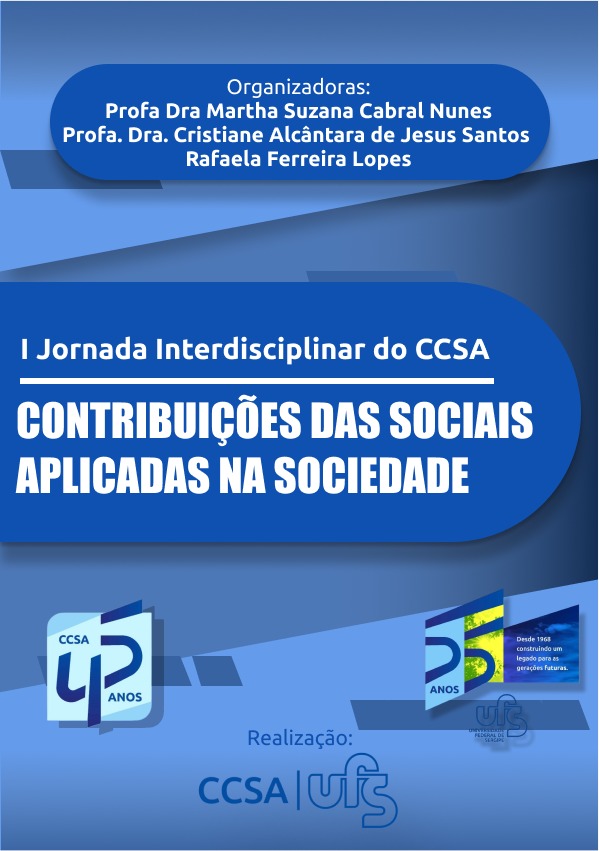Contemporary Slave Labor
The COVID-19 Pandemic and Its Impact on the Working Conditions of Domestic Workers
DOI:
https://doi.org/10.33467/conci.v6i.20092Keywords:
Contemporary Slave Work, Domestic Work, Social Reproduction TheoryAbstract
This expanded summary's goal is to provide the discussions and findings from the research project Contemporary Slave Work: The COVID-19 Pandemic and Its Impact on the Working Conditions of Domestic Workers". On this way, here and in the related study, we analyze the conditions of domestic work and consider if they may be characterized as Contemporary Slave Work (TEC). Eleven domestic workers were interviewed while discussing their life stories using interviewing techniques such as participant observation, open-ended questions, and bibliographical research. This study focuses on the relationship between reproduction and production in an effort to understand how the invisibility at home, which is intrinsically linked to issues of gender, class, and race, sustains the degradation of humanity in a subtle and natural way. We also look to the Social Reproduction Theory (TRS) for an explanation of the questions surrounding how the invisibilization of domestic work (reproduction), which favors contemporary slave work and is beneficial to the capital, leads to the extinction of these corpos. This is in addition to analyzing article 149 of the Brazilian penal code, which defines the crime of reducing someone to slavery status. As a result, in the expanded version of the current summary, it will be possible to illustrate, succinctly, the relationship between contemporary slavery, domestic work, and capital preservation based on a legal analysis that demonstrates the necessity for such a relationship.
Downloads
References
ANDRADE, S. S. A mulher negra no mercado de trabalho: Condições escravistas das trabalhadoras domésticas. 1. ed. Curitiba: Editora CRV, 2022. 142p.
ARRUZZA, C.; BHATTACHARYA, T.; FRASER, N. Feminismo para os 99%: um manifesto. São Paulo: Boitempo, 2019. 128p.
BRASIL. [Constituição (1998)]. Constituição da República Federativa do Brasil de 1988. Brasília, DF: Presidência da República, 1988. Disponível em: https://www.planalto.gov.br/ccivil_03/constituicao/constituicao.htm. Acesso em: 10 abr. 2023.
BRASIL. Lei nº 10.803, de 11 de dezembro de 2003. Altera o art. 149 do Decreto-Lei n° 2.848, de 7 de dezembro de 1940 - Código Penal, para estabelecer penas ao crime nele tipificado e indicar as hipóteses em que se configura condição análoga à de escravo. Diário Oficial da União, Brasília: Presidência da República, [2003]. Disponível em: https://www.planalto.gov.br/ccivil_03/Leis/2003/L10.803.htm. Acesso em: 10 abr. 2023.
CONFORTI, L. P. Interpretações do conceito de trabalho análogo a de escravo: a luta pelo direito ao trabalho digno e pelo direito fundamental de não ser escravizado no Brasil. 2019. 379f. Dissertação (Doutorado em Direito) - Programa de Pós-Graduação em Direito da Faculdade de Direito, Universidade de Brasília, Brasília, 2019. Disponível em: https://repositorio.unb.br/handle/10482/35463. Acesso em: 10 abr. 2023.
FERGUSON, S.; MCNALLY, D. Capital, força de trabalho e relações de gênero.: Introdução à edição de marxismo e a opressão às mulheres na série historical materialism. In: VOGEL, L. Marxismo e a opressão às mulheres: rumo a uma teoria unitária. São Paulo: Expressão Popular, 2022, p. 55-94.
MARIZ, R. Brasil teve em 2021 o maior número de resgates de domésticas exploradas em condições análogas a de escravizadas. O Globo, Rio de Janeiro, 06 mar. 2022. Disponível em: https://oglobo.globo.com/brasil/direitoshumanos/isolamento-idade-avancada-lacos-afetivos-dificultam-reinsercao-social-de-resgatadas-em-situacao-analoga-escravidao-1-25420559. Acesso em: 20 fev. 2022.
PEREIRA, M. R. A invisibilidade do trabalho escravo doméstico e o afeto como fator de perpetuação. 2021. 295f. Dissertação (Mestrado em Direito) - Programa de Pós-graduação em Direito, Universidade Federal de Minas Gerais, Belo Horizonte, 2021. Disponível em: http://hdl.handle.net/1843/38505. Acesso em: 20 fev. 2022.
FONSECA, R. S. R. Unidade, diversidade e totalidade: a teoria da reprodução social e seus contrastes. 2019. 225f. Dissertação (Mestrado em Direito) - Programa de Pós-graduação em Direito, Universidade do Estado do Rio Janeiro, Rio de Janeiro, 2019. Disponível em: file:///C:/Users/201800146330/Desktop/FINAL23032019_DISSERTACAORHAYSARUAS.pdf. Acesso em: 20 fev. 2022.
SANTANA, C. B. Afeto e solidariedade no trabalho escravo doméstico: estudo de caso “doméstica de criação”. 2021. 168f. Monografia (Graduação em Direito) – Departamento de Direito, Universidade Federal de Sergipe, Sergipe, 2021. Disponível em: https://ri.ufs.br/jspui/handle/riufs/15187. Acesso em: 20 fev. 2022.
Published
How to Cite
Issue
Section
License
Copyright (c) 2023 Shirley Silveira Andrade, Sayonara Hallin Martins Andrade, Mayra Santos Moura

This work is licensed under a Creative Commons Attribution 4.0 International License.
ConCI adopts the CC BY 4.0 License  , where licensees have the right to copy, distribute, display and perform the work and make derivative works from it, provided that due credit is given to the author or licensor.
, where licensees have the right to copy, distribute, display and perform the work and make derivative works from it, provided that due credit is given to the author or licensor.
ConCI considers that the author holds the copyright on his/her production, but the author must agree to grant the journal the right to the first publication. In addition, the author must agree that:
• in any publications in institutional repositories, book chapters or other productions resulting from works published in ConCI, due credit must be given to the initial publication.
• are authorized to publish and distribute their work online (eg, in institutional repositories or on their personal page) at any time before or during the editorial process, as this can generate productive changes as well as increase the impact and citation of the work published by ConCI.














 Licenciada por
Licenciada por 